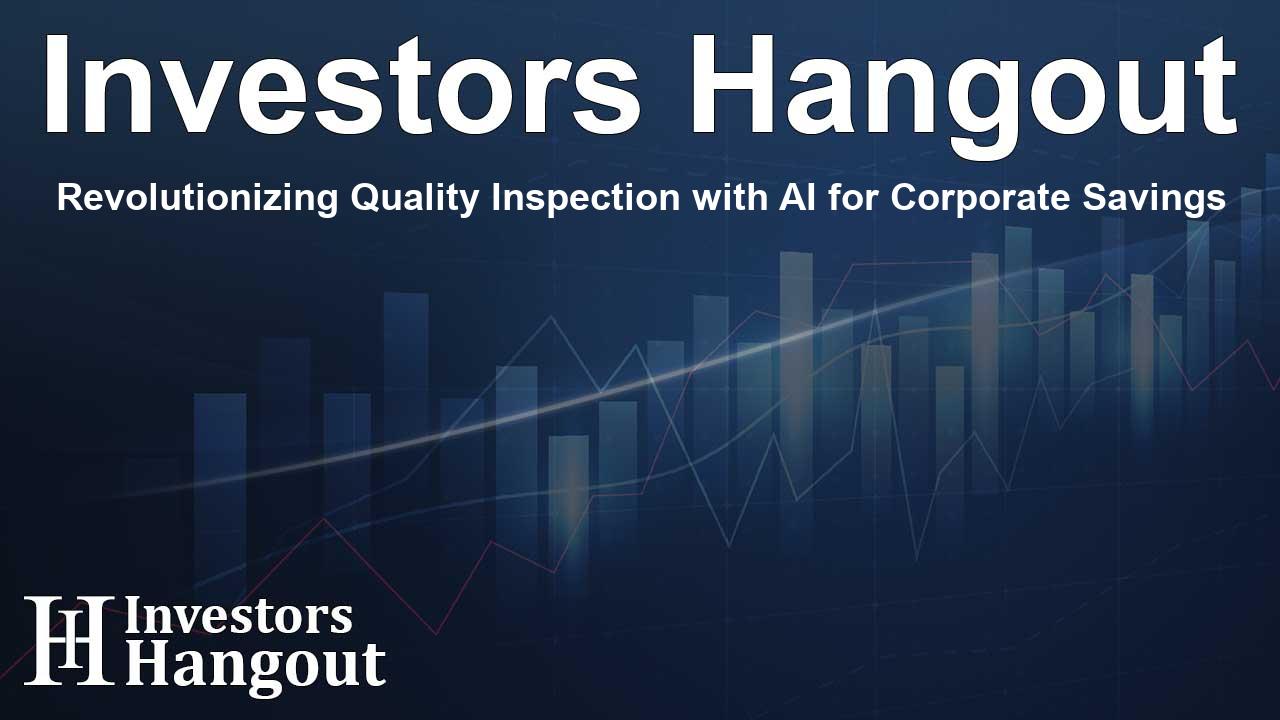Revolutionizing Quality Inspection with AI for Corporate Savings

AI-Driven Quality Inspection: A Game Changer for Businesses
In today's competitive landscape, businesses are on the brink of a financial revolution. Companies worldwide are beginning to realize the tremendous potential for savings as they incorporate Artificial Intelligence (AI) into their quality inspection processes. This transformative technology is set to redefine the way quality control is executed, leading to not only enhanced accuracy but also significant cost reductions.
The Challenges of Traditional Quality Control
For many organizations, traditional quality control methods have long been a necessary yet cumbersome undertaking. These labor-intensive processes are often riddled with human error, contributing to a substantial rise in operational costs. In fact, visual quality inspection can account for over 60% of total quality control labor expenditures. The introduction of AI in visual inspection systems has the potential to remedy these issues. By automating defect detection with impressive precision and speed, AI is revolutionizing how businesses operate.
Financial Benefits of AI in Quality Inspection
The economic impact of implementing AI technologies is becoming increasingly clear. Companies that have embraced AI for related purposes, such as predictive maintenance, report significant gains. For example, organizations have noted decreases in machine breakdowns by as much as 50% and maintenance costs dropping by 10-40%. Specifically regarding quality, studies indicate that AI implementations can reduce quality-related expenses by 10-20%. A notable example comes from Bosch, which integrated AI into its visual quality inspection processes, achieving a shocking 25% reduction in scrap rates and saving $1.2 million annually. Their defect detection accuracy improved dramatically from 89% with manual efforts to 97.6% using AI.
Real-World Applications of AI in Quality Control
Another global leader, Siemens, has similarly benefited from AI applications in its gas turbine production processes, experiencing a 20% decline in defects while generating millions in savings. Remarkably, these advancements demonstrate how AI in quality inspection is more than just an upgrade; it is a pivotal shift that empowers firms to enhance their competitive edge, produce superior quality products, and achieve tangible financial returns.
Market Growth and Investments
The market reflects the growing adoption of AI technologies in manufacturing, indicating a bright future ahead. The global AI in manufacturing market, worth approximately $2.6 billion in 2022, is projected to soar to an astounding $20.8 billion by 2028, boasting a staggering compound annual growth rate (CAGR) of 45.6%. Within this landscape, the AI-based visual inspection software market alone was estimated to be valued at $624.29 million in 2023 and is expected to hit $1.96 billion by 2032. In a broader context, the overall AI visual inspection system market is anticipated to expand from $18.28 billion in 2024 to $52.38 billion by 2034.
Flexible Vision: Paving the Way in AI Quality Inspection
At the forefront of this transformation is Flexible Vision Inc, a pioneering company specializing in AI machine vision software and hardware solutions for automating visual inspections within manufacturing environments. The company is committed to delivering innovative solutions that enhance operational efficiencies and drive cost savings for their clients.
Contact Information
For those interested in learning more about Flexible Vision and its cutting-edge technology, resources are readily available. Company President Aaron Silverberg can be reached at (619) 287-7000 x250, and more details can be found by visiting their official website at www.FlexibleVision.com.
Frequently Asked Questions
What is AI-powered quality inspection?
AI-powered quality inspection utilizes Artificial Intelligence technologies to automate and enhance the accuracy of detecting defects during quality control processes.
How can companies benefit from implementing AI in their inspection processes?
Companies can experience reduced operational costs, improved product quality, and increased efficiency, leading to significant financial savings and competitive advantages.
What are some real-world examples of AI in quality inspection?
Notable examples include Bosch and Siemens, both of which have successfully integrated AI, leading to substantial reductions in scrap rates and defects.
What is the market outlook for AI in manufacturing?
The market is anticipated to grow significantly, with projections indicating a rise from $2.6 billion in 2022 to around $20.8 billion by 2028.
How does Flexible Vision contribute to AI quality inspection?
Flexible Vision provides innovative AI-based solutions that automate visual inspections, helping companies optimize their quality control processes.
About The Author
Contact Dominic Sanders privately here. Or send an email with ATTN: Dominic Sanders as the subject to contact@investorshangout.com.
About Investors Hangout
Investors Hangout is a leading online stock forum for financial discussion and learning, offering a wide range of free tools and resources. It draws in traders of all levels, who exchange market knowledge, investigate trading tactics, and keep an eye on industry developments in real time. Featuring financial articles, stock message boards, quotes, charts, company profiles, and live news updates. Through cooperative learning and a wealth of informational resources, it helps users from novices creating their first portfolios to experts honing their techniques. Join Investors Hangout today: https://investorshangout.com/
The content of this article is based on factual, publicly available information and does not represent legal, financial, or investment advice. Investors Hangout does not offer financial advice, and the author is not a licensed financial advisor. Consult a qualified advisor before making any financial or investment decisions based on this article. This article should not be considered advice to purchase, sell, or hold any securities or other investments. If any of the material provided here is inaccurate, please contact us for corrections.
